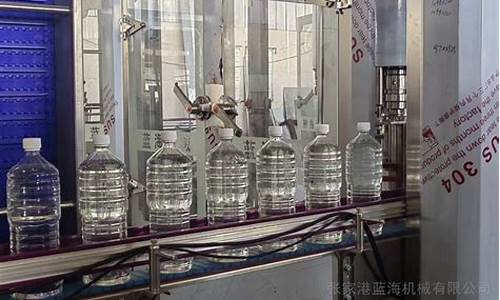In recent years, the catering industry has witnessed a significant rise in demand for efficiently managed beverage services, particularly concerning the quality and reliability of supplied beverages such as mineral water. This trend has spurred the adoption of advanced mineral water filling equipment, which plays a crucial role in ensuring that restaurants, cafes, and other dining establishments can meet the high standards expected by their customers.

Enhancing Efficiency and Quality Control
One of the primary advantages of integrating mineral water filling equipment into the catering business is the enhancement of operational efficiency and quality control. These machines are designed to automate the process of filling and packaging mineral water, reducing manual labor and human errors. By maintaining a consistent level of quality and hygiene, restaurants can ensure that every serving of mineral water meets regulatory standards and customer expectations.
Meeting Consumer Demand for Safety and Hygiene
In today's health-conscious society, consumers are increasingly concerned about the safety and hygiene of the beverages they consume. Mineral water filling equipment incorporates advanced sanitization techniques that minimize the risk of contamination during the bottling process. This capability not only ensures the purity of the water but also reassures consumers of its safety, thereby enhancing customer trust and loyalty to the establishment.
Cost Efficiency and Sustainability
Another significant benefit of using mineral water filling equipment in the catering industry is its cost efficiency and sustainability. These machines are designed to optimize water usage and minimize material wastage, contributing to lower operational costs and reduced environmental impact. By investing in such equipment, restaurants can achieve long-term savings while aligning with eco-friendly practices, which are increasingly valued by consumers and regulatory bodies alike.
Conclusion
In conclusion, the application of mineral water filling equipment in the catering industry offers substantial benefits ranging from enhanced operational efficiency and quality control to meeting consumer demands for safety and sustainability. As the market continues to prioritize health, hygiene, and environmental responsibility, integrating these advanced technologies not only positions restaurants as leaders in their field but also ensures continued customer satisfaction and regulatory compliance. By embracing innovation in beverage management, catering establishments can elevate their service standards and capitalize on emerging opportunities in the competitive hospitality sector.






























